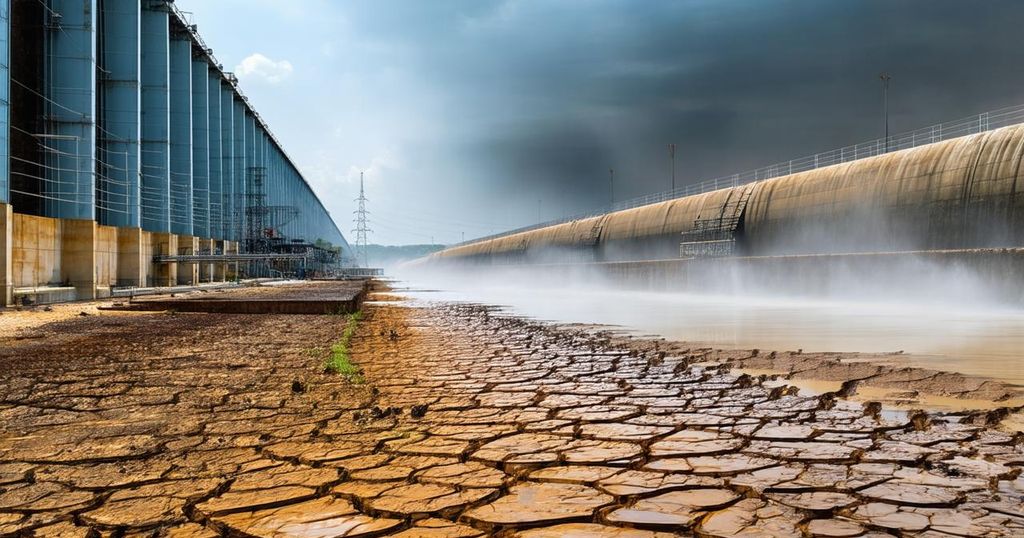Zambia and Zimbabwe are experiencing severe power cuts of up to 17 hours daily due to drought conditions affecting the Kariba Dam, the primary source of hydroelectric power for the countries. The critical water shortages pose significant challenges to their energy supply and economic stability.
Recent severe drought conditions have led to significant electricity supply challenges in both Zambia and Zimbabwe, with power interruptions extending up to 17 hours daily. The Kariba Dam, renowned as the world’s largest man-made lake and a critical source of hydroelectricity for the neighboring countries, has experienced alarming water level declines. This situation has resulted in a scarcity of the necessary hydroelectric power generation, which these nations heavily depend on, thus plunging many regions into darkness. Reports by Nyasha Chingono reveal that the serious water shortages faced are not only affecting power supply but are also posing broader economic challenges to the populations reliant on consistent electricity availability.
Zambia and Zimbabwe largely depend on hydroelectric power generated from the Kariba Dam, which harnesses water from the Zambezi River. This dam is of immense importance to both countries, providing a majority of their electricity needs. However, recurring droughts have severely reduced water levels in the dam, affecting its capacity to generate electricity. The climate crisis continues to exacerbate the situation, prompting ongoing investigations into alternative energy sources and long-term strategies to mitigate the impact of such environmental challenges.
In summary, the ongoing drought impacting the Kariba Dam has led to extensive power outages in Zambia and Zimbabwe, with citizens facing daily challenges of prolonged blackouts. The situation underscores the urgent need for increased investment in sustainable energy solutions and a comprehensive strategy to address the ramifications of climate change. As both nations navigate these crises, the reliance on hydroelectric power prompts a reevaluation of their energy strategies moving forward.
Original Source: www.france24.com







